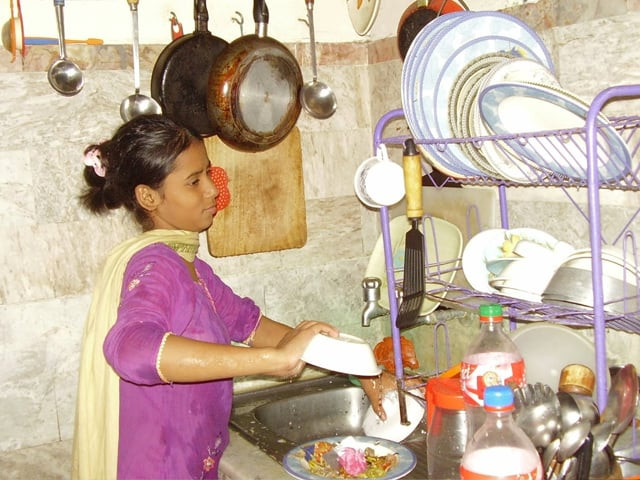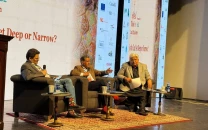EFP introduces code of conduct for domestic workers’ rights
Supported by ILO, initiative highlights need for fair treatment, decent working conditions

The Employers Federation of Pakistan (EFP) launched a code of conduct for employers of domestic workers during a tripartite meeting, represented by more than 100 representatives from employers, workers’ federations, civil societies, and officers from the labour department, as well as the International Labour Organisation (ILO).
The code of conduct consists of various crucial aspects including implementation of minimum wage for workers, ensuring working hours, fulfilling health and safety rules among other initiatives.
While addressing the launch ceremony held at a private hotel, Secretary Labour and Human Resource Development Department Sindh, Shariq Ahmed stated that the code of conduct will help promote decent working conditions and protect the rights of domestic workers. He highlighted that the initiative will help domestic workers, who represent a large portion of the informal economy, and are deprived of their fundamental rights. He noted that these domestic workers face numerous challenges, including low wages, poor working conditions, harassment, and various forms of abuse. He appreciated the efforts and commitments of EFP in promoting decent work for all and stated that the code will provide the basis for legislation on domestic workers in Sindh, according to a press release.
EFP’s Secretary-General, Syed Nazar Ali shed light on the salient features of the code of conduct, which has been developed with the support of the International Labour Organisation (ILO) and in consultation with all stakeholders, to foster decent working conditions for domestic workers. The code serves as a voluntary tool and offers guidance to employers of domestic workers on the terms of employment to uphold equitable practices and nurture positive working relationships.
Read Moot seeks better laws for domestic workers
Country Director of ILO Pakistan Office, Geir Tonstol emphasised that implementing the Fundamental Principles and Rights at Work and other ILO Conventions like Convention 189 will pave the way to promoting decent work for domestic workers. He acknowledged the national laws for domestic workers, underscoring the link between the laws and their implementation. Tonstol expressed hope that this code of conduct would serve as a guideline to initiate discussions and lead to the formulation of a law for domestic workers in Sindh. He reiterated the ILO’s technical support to its tripartite constituents in promoting decent work for all in Pakistan, including domestic workers.
EFP Vice President, Feroz Alam highlighted the organisation’s efforts and reiterated the vital role of domestic workers in our lives, caring for our children and managing household responsibilities. He stressed the importance of respecting domestic workers and ensuring they have favourable working conditions, particularly considering their significance as a source of employment, especially for those with limited education, notably women. He advocated for the regulation of their employment and working conditions, asserting that implementing a code of conduct would foster behavioural changes and acknowledgment of domestic workers.
Secretary-General of the Pakistan Workers Federation, Waqar Memon echoed similar sentiments, regarding the initiative as a positive step toward recognising and safeguarding the rights of domestic workers. He underscored the necessity of enacting laws to protect the rights of domestic workers in Sindh, emphasising the importance of legal frameworks to ensure their fair treatment and well-being.
Published in The Express Tribune, February 27th, 2024.
Like Business on Facebook, follow @TribuneBiz on Twitter to stay informed and join in the conversation.



















COMMENTS
Comments are moderated and generally will be posted if they are on-topic and not abusive.
For more information, please see our Comments FAQ